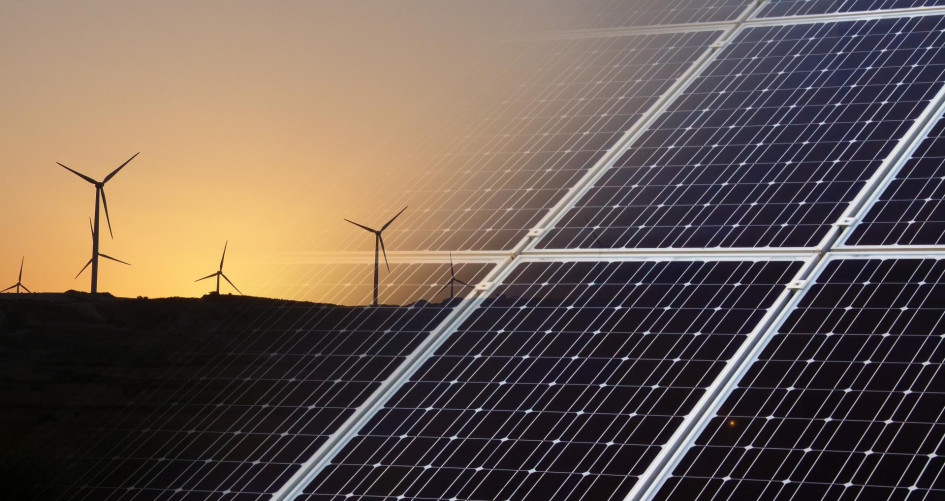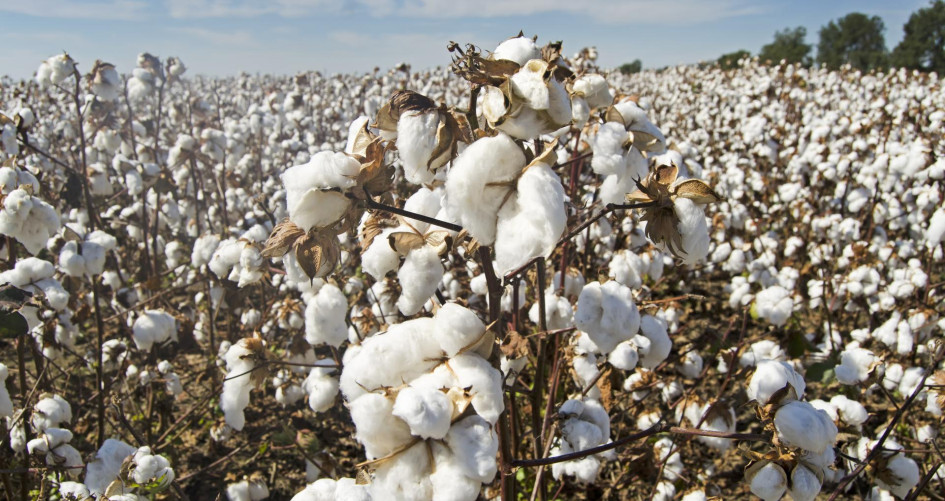MADRID, 9 December 2019
Our commitment
We, the fashion company signatories of the Fashion Industry Charter for Climate Action, share a fundamental commitment to drive the fashion industry to net-zero emissions in line with the goals of the Paris Agreement no later than 2050.
The Fashion Industry recognizes that current solutions and business models will be insufficient to deliver on the climate agenda and that the Fashion Industry needs to embrace a deeper, more systemic change and bring to scale low-carbon solutions.
We reaffirm our strong commitment under the Charter:
- To set and meet internal targets on renewable energy and energy efficiency in line with the Paris Agreement and rapidly scale up energy efficiency and emission reduction programmes;
- To work collaboratively with policymakers to identify and implement low-carbon solutions;
- To support our supply chains to gradually phase out new coal-fired boilers or other sources of coal-fired heat and power generation, on sites within Tier one and Tier two, latest by 2025;
- To work collaboratively to develop emission-reduction pathways, work programmes, and tools necessary to achieve our emission reduction targets;
- To invest in sustainable production and related technologies.
Our request to governments
Recognizing, that nearly all major fashion producing, and consuming countries have signed the Paris Agreement;
Recognizing also, that political support in these countries, in the form of enabling conditions is needed to achieve effective, just and sustainable climate solutions;
We, the fashion company signatories to the Fashion Industry Charter for Climate Action, ask the political leaders of countries with major fashion production and consumer markets to partner with us to bring the industry in line with the Paris Agreement goal of limiting average global temperature rise to 1.5 degree Celsius:
- Providing businesses and financial institutions with predictable, transparent and motivating planning contexts for renewable energy investment, for example by ensuring government energy roadmaps are clearly communicated;
- Responding to the urgent need for rapid scale-up of grid-connected renewable energy sources, and the swift phase-out of the highest-emitting fossil-fuel-based sources of energy, while ensuring a just and sustainable transition;
- Providing incentives for a swift transition to renewable energy, for example through the provision of feed-in tariffs to manufacturers and suppliers that generate electricity from renewable sources, and which can feed their excess electricity into the public electricity grid;
- Ensuring credible and legally recognized renewable electricity tariffs and power purchase agreements are available for fashion brands and manufacturers to purchase as part of reducing their greenhouse gas emissions;
- Creating an enabling environment for the rapid phase-out of non-renewable energy sources for all non-grid or high heat processes, for example through research and incentives for alternative biomass sources;
- Working with the Fashion Industry to understand and address potential barriers to sector transformation and uptake of energy efficiency and renewable energy technology, with a focus on understanding the key role of tariffs, subsidies or legal barriers at a national or state level.
Champions of the communique
“It is urgent and necessary that we act to minimize CO2 emissions. All fashion industry players need to take action and play our part in fighting climate change.”- Anders Kristiansen, Chief Executive Officer, Esprit Group
“The Communique is an important step to support our supply chain partners and subsidiaries on their journey to reduce Greenhouse Gas Emissions. To hit our ambitious Climate Targets, renewable energy must be made widely available in countries in which PUMA manufactures and distributes its products.”- Bjørn Gulden, Chief Executive Officer, PUMA SE
“As a creative, innovation-led business, Burberry is in a unique position to build a more sustainable future for fashion. Our current Responsibility agenda encompasses our extended supply chain and outlines ambitious goals to achieve by 2022 that span our products, our operations and the people that support the luxury industry. Last year, we set stretching science-based targets aligned with the most ambitious goal of the Paris Agreement – to keep global warming to 1.5°C. Achieving the change we need to see will require collaboration across all industries, which is why we are supporting the Fashion Industry Charter for Climate Action and calling on global leaders to partner with us to bring our entire industry, not just our business, in line with the Paris Agreement.” - Marco Gobbetti, Chief Executive Officer, Burberry
“We recognize that the decisions made in the fashion industry have a huge impact on people and the planet. We want to push the boundaries of what a footwear brand can do to be sustainable. Our company is proud to support the Fashion Industry Charter communique presented at COP25 to do our part in the fight against climate change. This cannot be done in silo. Governments must support this with bold commitments and action on renewable energy and energy efficiency. Together, we can drive the fashion industry to meet the goals of the Paris Agreement.” - David Bensadoun, Chief Executive Officer, The ALDO Group
“I’m proud to join my peers as an advocate of the Fashion Charter. As one of the world’s largest apparel companies, we recognize our responsibility to incorporate environmentally sustainable practices into all of our business activities and play our part in the fight against climate change. Through the goals outlined in our Forward Fashion corporate responsibility strategy, we are taking actions to reduce our greenhouse gas emissions and transition to renewable energy, both at our owned and operated facilities, and within our supply chain. We know that policy support and change is critical to meaningful progress, and we’re committed to working with our Fashion Charter peers to accelerate this important work combatting climate change.” - Emanuel Chirico, Chairman and CEO, PVH Corp.
“The climate crisis is one of the most important issue to tackle. As a global fashion retailer, we have a big role to play and collaboration is key. All actors need to take their responsibility to drive the change towards cutting emissions and staying within planetary boundaries. Companies need to commit to this change, governments need to facilitate the process with the right laws, regulations and implementation thereof.” - Karl-Johan Persson, CEO H&M Group
“The consequences of climate change are real for all of us. Nike is on our own journey toward a zero carbon and zero waste future, but we know to accelerate progress we need collective action across our industry. We’re proud to be part of the coalition of leaders in the United Nations Fashion Industry Charter for Climate Action committed to working towards the goals of the Paris Agreement.” - Mark Parker, Chairman, President and CEO, NIKE, Inc.
“At El Corte Inglés we are fully aware of the huge climate challenge the fashion industry is facing. As a committed retailer, we want to be part of the solution through sustainable innovation and systemic collaboration, driving the industry to become carbon neutral. We endorse therefore the work and communique of the UN Fashion Industry Charter for Climate Action and its ambitious targets.”-Víctor del Pozo, Chief Executive Officer, El Corte Inglés
“The RealReal has pledged to be carbon neutral in 2021, because we believe all fashion companies must take aggressive strides to reduce their impact. To mobilize an entire industry, we need political leaders to create favorable environments for change. That is a fundamental and critical part of aligning our industry with the goals of the Paris Agreement.” - Julie Wainwright, founder and Chief Executive Officer, The RealReal
“As a manufacturer based in the small island of Mauritius, we are probably the most concerned with climate change. The textile industry in the world is among the biggest contributor directly and indirectly to global warming. This Fashion Industry Charter for Climate Action communique is a very important signal to policy makers around the world on the necessity to have the right framework to enable and promote actions to reduce our level of carbon emissions. Unfortunately, some of our current projects are being delayed or blocked due to the absence of clearly defined policies. At RT Knits, we are fully aware about the risks of conducting business as usual. We are changing our business model fundamentally. From sourcing, to production and going through design, we are reviewing every step of our current practices to reduce our energy consumption or replace with renewable sources. We are fully committed to reach zero emissions before 2050.”- Kendall Tang, Chief Executive Officer RT Knits
“As member of the Fashion Industry Charter for Climate Action, we are stepping up to call for immediate climate action, recognizing that the climate crisis is not just a business and economic risk, but a humanitarian risk. While most Fashion corporates are now determined to be better for the environment and working to minimize our collective impact, it’s not nearly enough. Given our climate emergency, it’s not enough for individual companies to buy offsets, put solar on roofs, or even to create internal carbon taxes or transition to recycled products. Rethinking entire business models is necessary, but also insufficient. Our climate crisis requires action by policymakers to align incentives and to create a level playing field or a just transition to a circular economy. It’s time to use our voice as business leaders to make that call to action to policy makers to act.” - Emanuele Bertoli, Chief Executive Officer, BerBrand
“re:newcell wholeheartedly supports the Fashion Charter Communique’s call on governments and policymakers to incentivize and accelerate the transition to a net-zero emissions energy supply. Moving textile supply chains to net-zero emissions energy sources, coupled with the elimination of waste and scaling up of low-impact circular raw materials, is crucial to limiting the average global temperature rise to 1.5 degrees Celsius.” - Patrik Lundström, Chief Executive Officer of re:newcell
“It is the responsibility of our generation that appropriate climate actions are implemented based on the obvious needs. Only through adequate corrective measures can we create an innovation environment that can turn our economy into a sustainable and livable future in a timely fashion. The textile industry has a leading role in this – and bears the potential to become a role model for other sectors.”- Rüdiger Fox, Chief Executive Officer of Sympatex Technologies
“TEXTIL SANTANDERINA has always kept in mind its commitment to sustainability and respect for the ecosystem, but today is TIME TO ACT together in the spirit of SDG-17. For this reason, we support the public communique of the Fashion Industry Charter for Climate Action.”- Juan Parés, Chief Executive Officer, Textil Santanderina
“The key is responsibility and collaboration to obtain a net-zero emission for fighting with human-made climate change.”, Selin Gür, Chief Executive Officer, SLN Tekstil ve Moda San. Tic. A.Ş
“In my view the climate emergency is the single most pressing global challenge we face. It does not recognize national boundaries. The fashion and textile industry is a truly globalized industry with fragmented supply chains and global markets, and therefore has a responsibility and huge opportunity to work beyond national borders to make meaningful reduction on CO2 levels. We cannot continue “business as usual” and need to follow models of more responsible production and consumption. Business can be a huge agent of change, if policy makers create the right environment. For these reasons I fully support the communique.” - Prama Bhardwaj, Chief Executive Officer of Mantis World
About the Fashion Industry Charter for Climate Action
Signatories of the Fashion Industry Charter for Climate Action
Fashion Company Signatories endorsing the Public Communique
|
Sympatex Technologies GmbH
|
SKFK-Skunkfunk
|
Hakro GmbH
|
|
Guess?, Inc.
|
H&M group
|
Esprit
|
|
PUMA SE
|
Target Corporation
|
Aquitex S.A.
|
|
Stella McCartney
|
Mantis World
|
SLN Tekstil ve Moda San. Tic. A.Ş
|
|
Mammut sports Group AG
|
Lenzing AG
|
Schoeller Texti AG
|
|
PIDIGI S.P.A.
|
Arc'teryx
|
Salomon
|
|
Burberry
|
Peak Performance Production AB
|
Adidas AG
|
|
Tropic Knits Ltd
|
Inditex
|
P. Møller-Mærsk A/S
|
|
Hugo Boss AG
|
Levi Strauss & Co
|
Re:newcell AB
|
|
Gap Inc.
|
Otto Group
|
PVH Corp
|
|
DBL Group
|
LIMY Inc dba Reformation
|
Kering Group
|
|
Evea Eco Fashion
|
BerBrand Srl
|
Worn Again
|
|
Denim Expert Limited
|
Textil Santanderina, S.A.
|
COFREET"
|
|
VF Corporation
|
GANNI
|
GANT AB
|
|
Regatta Group
|
New Balance Athletics, Inc.
|
TINTEX Textiles, S.A.
|
|
The RealReal
|
Vivida Lifestyle Ltd
|
NIKE, Inc
|
|
DECATHLON
|
Circular Systems SPC
|
Fenix Outdoor International AG
|
|
Pattern SpA.
|
John Smedley Ltd
|
G-Star RAW C.V.
|
|
Loomstate
|
Hansoll Textile Ltd.
|
KiK Textilien und Non-Food GmbH |
|
Anko
|
Target Australia
|
Kmart Australia Limited
|
|
ASICS Corporation
|
El Corte Inglés, SA.
|
Farfetch
|
|
Lever Style Inc.
|
Hop Lun (Hong Kong) Ltd.
|
CAPRANEA SPORTS AG
|
|
Hong Kong Non-Woven Fabric Ind. Co. Ltd.
|
TAL Apparel Ltd.
|
Hanbo Enterprises Ltd.
|
|
American & Efird (HK) Ltd.
|
Chenfeng Group Co., Ltd
|
K-Boxing
|
|
Clover Group International Ltd
|
Pinneco Research Ltd.
|
The Schneider Group
|
|
RT Knits Ltd
|
The Renewal Workshop
|
ALDO Group
|
|
Elevate Textiles
|
Craghoppers Ltd
|
Reserva
|
|
American Eagle Outfitters
|
Lojas Renner
|
Shokay
|
|
Mulberry Group plc
|
Groupe Rossignol
|
Ralph Lauren
|
|
CHANEL
|
|
|
Glossary





